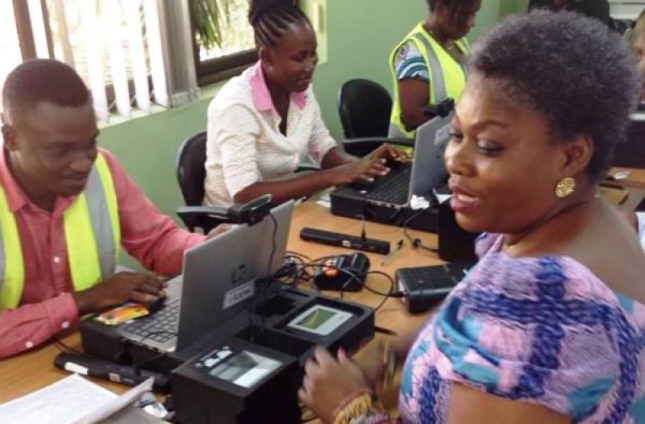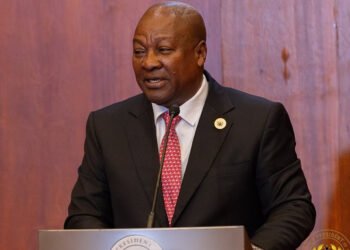The Ghana Revenue Authority (GRA) has broken its silence over its recent disconnection from the National Identification Authority’s (NIA) Identity Verification Services (IVS) platform, firmly rejecting claims that it owes the NIA a validated debt and questioning the legitimacy of the transaction that created the alleged financial obligation.
In a statement issued by the Authority’s Communication and Public Affairs Department, the GRA described the public claims by the NIA and related media reports as surprising and problematic.
It clarified that the supposed debt, which reportedly led to its disconnection from the IVS platform, stems from what it termed a “legacy debt” originating prior to 2025.
According to the GRA, this debt is not enforceable under current governance protocols due to the absence of proper regulatory and administrative approvals.
“There were no regulatory and governance approvals for the transaction that created the purported debt. GRA’s principles of transparency, compliance, and governance protocols do not permit the enforcement of transactions that do not meet regulatory requirements, particularly as demanded by the reset vision of the President and the Government.”
Ghana Revenue Authority
The reset vision, referenced in the statement, is a reflection of the current administration’s pledge to tighten public sector accountability and enforce proper institutional reforms.

The IVS platform, which forms a critical part of identity verification across multiple government services including tax administration, has become an indispensable digital tool in Ghana’s evolving public service infrastructure.
Its disconnection from the GRA has triggered widespread concern, especially in the business and logistics sectors where taxpayer verification through the Ghana Card is now an integral requirement for processing goods and services.
However, the GRA maintained that the circumstances surrounding the debt in question are questionable at best. The Authority emphasised that, based on its internal review, there was no existing service agreement between the GRA and the NIA covering the IVS access for which it is now being charged.
Furthermore, GRA revealed that the NIA had been allowed to operate registration desks across GRA offices nationwide for years — a gesture of inter-agency collaboration — without being charged rent or utility costs.
“Under the existing arrangements between the two agencies, NIA was allowed and had set up their desk offices at GRA premises nationwide, where they register individuals and issue them with the National Identification cards without paying rent and utilities to the GRA for years.”
Ghana Revenue Authority
Commitment to Resolve Standoff
Despite its objections to the debt, the GRA made it clear that it recognizes the importance of collaboration with the NIA, particularly as the Ghana Card remains a core feature of tax identification and administration under ongoing digitization efforts.

As such, it confirmed that high-level engagements are currently underway between the two institutions in a bid to resolve the matter amicably and restore full functionality of the IVS platform.
“There are current high-level discussions between the two agencies in resolving the issues. particularly where GRA has identified some procedural breaches and cannot affirm the existence of a service agreement between the parties.”
Ghana Revenue Authority
The Authority expressed hope that these discussions would help preserve and strengthen the cordial working relationship between the two state agencies while protecting the operational stability of key national institutions.
In the meantime, the GRA sought to reassure taxpayers and the general public that it remains fully committed to delivering its mandate despite the setback.
It reaffirmed its values of fairness, integrity, responsiveness, service, and teamwork, and called for calm as the issue is addressed through proper channels.
The fallout between the two institutions has sparked broader conversations about the contractual and financial architecture of Ghana’s public-private partnerships, especially those involving digital infrastructure.
The Ghana Card project, in particular, has drawn scrutiny over ownership, costs, and the long-term financial commitments entered into by various government agencies.

While the NIA has not issued a formal response to GRA’s claims yet, the controversy continues to draw attention from civil society groups and data policy analysts.
Many argue that such disruptions underscore the need for greater transparency and documentation in inter-agency dealings, particularly when they directly affect national revenue systems.
For now, both institutions appear willing to dialogue, even as questions linger about how a critical identity verification system could be suspended over unresolved debts — and whether the root cause lies in poor coordination or deeper structural issues within the state’s digital governance framework.
READ ALSO: PURC Leads Transformative Reforms to Strengthen Ghana’s Utility Sector






















